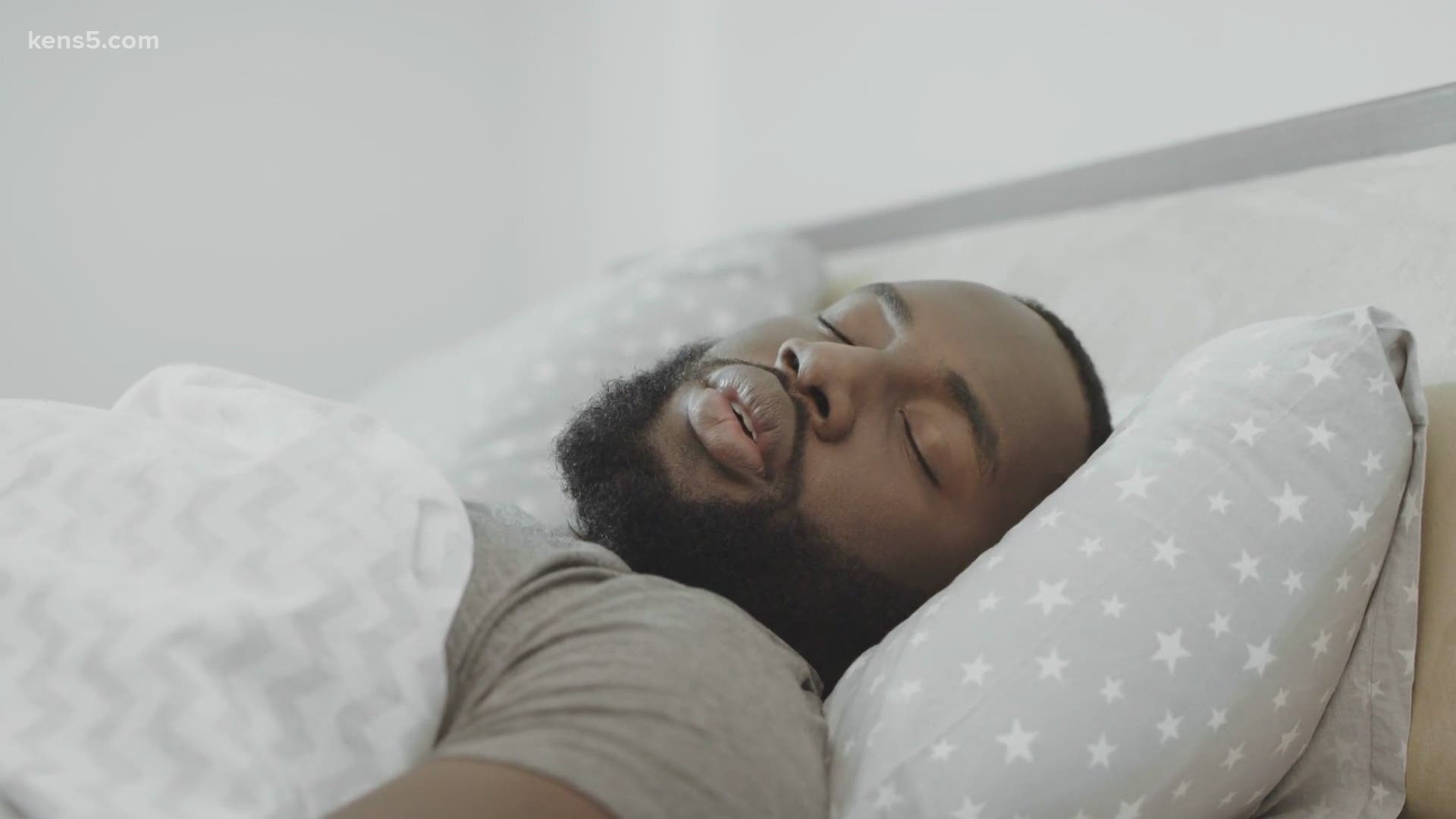SAN ANTONIO — Sleep is something we do with one third of our life. It is when we restore our body and reset ourselves, and not something to take lightly, experts say.
"Some people do okay with five hours. Others need eight or nine hours, so that is something you need to know, but anything less than four or five hours is kind of risky," said Dr. Suhaib Haq who is a family medicine physician and sleep medicine specialist with University Health and Medical Director for the Robert L.M. Hilliard Center.
He says sleep is important for the health of your brain.
"It's in sleep when our body restores all chemicals, all the hormones, especially in the brain that help promote memory," Dr. Haq said.
Some common symptoms of sleep disorders:
- You are tired even with enough sleep.
- You fall asleep during the day.
- You have trouble falling asleep often.
- You have a medical condition that keeps you awake.
- You snore or stop breathing in your sleep, which could be a sign of sleep apnea.
"If they are male, if their BMI is high, if they snore, if they have high blood pressure, their collar size is more than 16, those are risk factors for sleep apnea."
If left untreated it can lead to serious problems. Dr. Haq added, "Sleep apnea can lead to heart conditions, heart failure, atrial fibrillation, and those can lead to more complications including stroke."
When it comes to any medication for sleep including melatonin, talk to your doctor first.
"Most of the medications that are over-the-counter sleep as a side effect of those so they are meant for allergies they are meant for something else and they are sold as a sleep product because they promote sleep," he said.
For more information about family health call (210) 358-3045. You can also find the rest of our Wear the Gown stories here.

